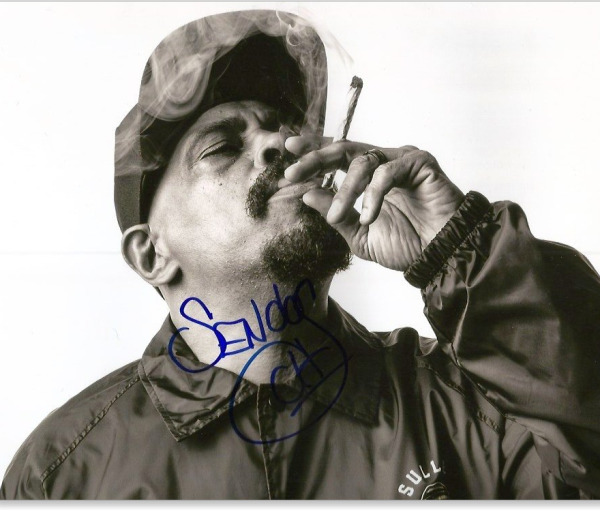BY SEAN HECK Consistently making waves as a member of the South Gate, California hip hop group Cypress Hill since the early 1990s, Cuban-American rhymesayer Sen Dog has been praised as a founding father of West Coast rap. However, he is far from a one-trick doggy. In addition to making history as a member of the first Latino-American recording group to reach platinum and multi-platinum status, Sen Dog has made his presence known across genres as the lead singer for rap metal outfits Powerflo (who are soon to begin promoting their upcoming album) and SX-10. He has brought memories of his early life in Cuba, past gang activity as a former member of a Bloods gang known as “Neighborhood Family”, and his well-known partiality towards marijuana together into a captivating and sonically disparate career. In advance of Cypress Hill’s show at the Fillmore Philly on Sunday, in support of the new Elephants On Acid, an unprecedentedly experimental and psychedelic take on the quartet’s long-established, weed-loving, hardcore gangsta rap aesthetic, we caught up with Sen Dog and chatted about some things. DISCUSSED: Elephants On Acid, the evolution of the rap game, 6ix9ine, gang life, The Base, being born in Cuba, legalization, leaf vs edibles.
PHAWKER: Let’s start with the elephant in the room: why is the new album called Elephants On Acid?
SEN DOG: Elephants On Acid was a dream that Muggs had that he was being chased down by a bunch of elephants, and he was running from them. He told me about that dream and I was like, “Whoa…that’s pretty crazy. What the fuck were you on when you went to bed?” And he started laughing. I 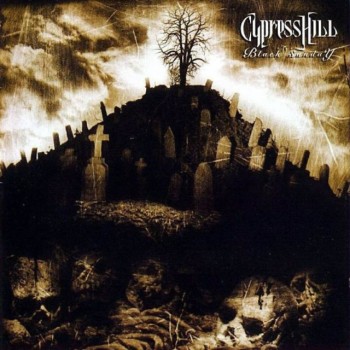 like the name. I gave it my own meaning. To me, Elephants On Acid means the band…the group…we are the elephants in the room. And acid is, ya know, the psychedelic hip hop that we trip out on.
like the name. I gave it my own meaning. To me, Elephants On Acid means the band…the group…we are the elephants in the room. And acid is, ya know, the psychedelic hip hop that we trip out on.
PHAWKER: How has the rap game changed since you guys started out nearly 30 years ago?
SEN DOG: The rap game has changed in a lot of ways. There are many ways to discuss that but artistically, it went from, ya know…in the beginning of rap it was “The hip to the hop, rap to the beat, shuffle my feet”, and all that stuff. Then it went into conscious rap, where guys were actually helping other humans find answers and solutions to the everyday problems that life brings on. And then it went right back to rap that don’t mean nothing! It went back to lyrics meaning nothing.
PHAWKER: So who are you listening to these days for pleasure? Who is on your playlist?
SEN DOG: Well I like Kendrick and Schoolboy Q. As far as the hip hop guys go, there was a guy…I’m sure you know who he is…Tekashi. He always presented himself in a clownish kinda way, and it always turned me off of him because I always thought this dude was just clowning. But one day some of his music was on and I just closed my eyes and listened thoroughly and I was like “Wow, this guy’s kinda alright! He has some good skills!” But the way it was presented was just this outta control clown-era type shit. So I kinda stay away from the newer things coming out. There’s not a lot of it coming out that attracts a guy my age. My favorite era for rap was, of course, when people had a conscience. They were trying to elevate not only hip hop but the community around it. The guys were going from coast to coast and getting together and collaborating, and I thought that was rap at its most powerful point.
PHAWKER: So with these newer guys, if they did a bit less of this posturing and this dress-up stuff, do you think they’d be better? Do you think there is more than meets the eye?
SEN DOG: Yeah, I do. Underneath that colorful hair and the tattooed face, you could 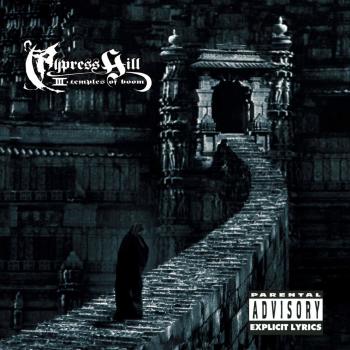 actually like their sound. There’s a thing called longevity in hip hop that some artists have been able to get to but…I can’t see one of those guys—let’s take Tekashi for example—I can’t see one of those guys 25 years from now still looking like that at age 50. You know what I mean?
actually like their sound. There’s a thing called longevity in hip hop that some artists have been able to get to but…I can’t see one of those guys—let’s take Tekashi for example—I can’t see one of those guys 25 years from now still looking like that at age 50. You know what I mean?
PHAWKER: Yeah. These people are racking up attention in all of the wrong ways.
SEN DOG: Exactly. And that just goes to show how much respect or disrespect they have for the artform. Guys like us nurtured our record deals. That was something sacred to us, and it wasn’t something to be taken lightly. We have to take what we do in a serious way, because we are international artists. I feel bad for some of these young guys getting shot and killed and busted and all that. Hip hop was supposed to save you from all that. It was supposed to take you outta that world, and into a different world, ya know? When guys bring their same B.S. from the streets into the entertainment field, it doesn’t play out well.
PHAWKER: Yeah, and speaking of what you were saying about hip hop bringing you off of a bad path, I wanted to hear you speak to that life. I was reading prior that you were affiliated with a Bloods gang called “Neighborhood Family.” I was wondering what you could tell me about that time in your life.
SEN DOG: That time in my life, I was looking for direction and something that I could identify with. I kinda fell into it by mistake. A high school friend that I played football with who lived in South Central invited me to trip out on the hood and all that. And back then the whole “Family” thing was in full effect. These guys actually loved each other. They were family forreal. I bonded with that. I wanted that, ya know? And that’s how that started. Then, eventually, B-Real wanted me to take him over there and hang out, so I did. And I took him down there and we just went off gangbanging, ya know? Like hardcore gangbanging. That was the beginning of that and I think, without he and I experiencing that life, I don’t know what we would rap about when it comes down to our “reality rap”. We saw a lotta things and did a lotta things and…even B-Real himself took one in the lung.
PHAWKER: Could you talk about how B-Real got shot in the lung back in ‘88? Did that make you guys what you are today?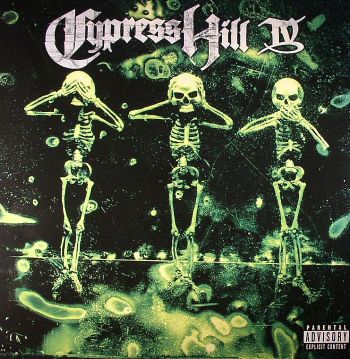
SEN DOG: Yeah. When B-Real got shot, it really hit home with me, because I’m the one who introduced him to that life. Some of our guys were already makin’ moves in the music field back then in ‘88, ya know? DJ Muggs was producing, and Mellow Man Ace was making moves and was signed to Capitol, ya know? Julio G was already on KDAY. So when I saw B-Real on that hospital bed, I was like “We gotta do something here. I can’t be 25 and 30 and still be about this.” So I went about seperating myself from the hood and more into the studio.
PHAWKER: So you just kind of went from doing something that can be dangerous and unproductive and you shifted that into something that’s productive and fruitful? That sounds like a healthy change.
SEN DOG: Yeah. On Cypress Avenue, we had brought that whole Bloods stuff. And everyone on the block was claiming Bloods and stuff. And I drew the line on the block and said “We ain’t claiming anything anymore. We are neutral. We’re not this or that. We’re not anything. We’re just Cypress.” And some of the guys didn’t like it, so they left and joined other crews. And the guys that stayed were like “Ok cool man. We’re just Cypress.” And that was that, ya know?
PHAWKER: At your shows, do you guys see mostly “oldheads”, or do you guys have younger fans at your shows as well? Do oldheads bring their kids?
SEN DOG: That’s the beautiful thing about Cypress, man, and I’m really glad you asked that. At our shows, you see everybody from 13 or 14 years old all the way up to 60. It’s a great thing to see that, because you see dudes that bring their little boys out. The kids are 12-14 years old and they see Cypress for the first time with their dad…it’s a beautiful thing to see man! We maintain what we developed because we worked hard over the years. And the fact that we developed this fanbase of all ages…and people stuck with us all those years…it’s beautiful. At a good Cypress Hill show, you see all types of people represented.
PHAWKER: You were born in Cuba and came to America when you were seven. What do you remember, if anything, from your time in Cuba? Why did your family leave? Have you been back since?
SEN DOG: No, I haven’t been back since. From what I remember…I don’t remember any of the negative communist stuff or anything because I was so young. But my older sister does. I remember, ya know, going to the beach with my aunts and uncles. I remember the ice cream parlor every Friday or Saturday night with my sister. I remember going bowling and eating pizza and stuff like that. I remember, ya know, being under the communist school system…and how rigid those teachers were. I still have memories of my grandparents and the house that we lived in and all that stuff. That may sound like a lot but really it’s not. But I’m glad I have, at least, those memories of my beginnings in Cuba. With that being said, I’m 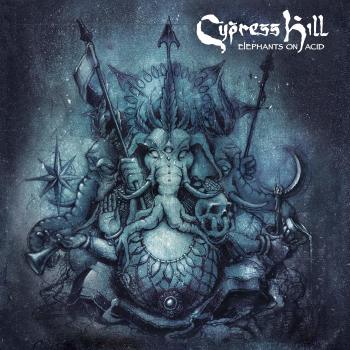 looking to return for the first time…hopefully this year. And I know it’s gonna be a big deal. Everybody in Cuba knows about Cypress Hill and they tell me that we’re the number one crew and everyone loves us out there and all that. So I know it’s gonna be an exciting and very emotional thing to do. Eventually, we wanna take the band out there to perform for sure. Hopefully that plays out one day.
looking to return for the first time…hopefully this year. And I know it’s gonna be a big deal. Everybody in Cuba knows about Cypress Hill and they tell me that we’re the number one crew and everyone loves us out there and all that. So I know it’s gonna be an exciting and very emotional thing to do. Eventually, we wanna take the band out there to perform for sure. Hopefully that plays out one day.
PHAWKER: Like the rap game, the marijuana game has changed radically since Cypress started out at the height of “Just Say No.” These days, America seems poised to legalize recreational marijuana use on a national level. Do you ever worry that all of this progress could be rolled back to the way it was in the old days of zero tolerance?
SEN DOG: Yeah. That’s in the back of my head. They could roll back to the old times and the “good ol’ boy” days and make everything illegal again. But you have to realize that these are different times. Human beings don’t think the same way that they did 50 and 70 years ago. There wasn’t this thing called the internet with all this research on it. I think now that people have done their research and are wise and schooled on the positive sides of marijuana, they can battle people trying to make it illegal again. At the same time, if they made it illegal again, that means the underground market will flourish. So either way, stoners win. You can’t stop it. It’s like trying to stop people from drinking beer…good luck!
PHAWKER: I think I know the answer to this one but…do you still smoke? If so, do you prefer smoking or edibles?
SEN DOG: Yeah. I still smoke. As a matter of fact, I’m smoking a joint as I talk to you! I like chocolate edibles. Chocolate bars and stuff like that. I don’t get too heavy into it because you can be stoned all day if you don’t know what you’re doing. But a little chocolate here and a little chocolate there before I go on stage for sure.
PHAWKER: Yeah man. Have you ever had a bad edible experience? Bad smoking experience?
SEN DOG: Yeah man! A bad edible experience. When edibles first got popular, I wanted to try it. So I went home one night and ate a whole chocolate bar, not knowing that I wasn’t supposed to do that and…man! I started tripping balls in my sleep! I knew I was tripping, but I couldn’t wake myself up. I couldn’t open my eyelids and wake up and get out of it. I was kinda stuck in a half-asleep, half-awake dream…stoned on chocolate. And the next morning, when I got up, I had a business meeting to go to. And I was thinking like “Man I should cancel this or flake!” But I went…and I was in this meeting completely plastered. I don’t know how I was able to function. It took me like 24 hours to shake that shit off and finally feel OK.
PHAWKER: What do you listen to when you get high these days?
SEN DOG: Right now I’m on some Slayer shit. I like to listen to Slayer when I get high. That’s what I’m into.
CYPRESS HILL + HOLLYWOOD UNDEAD @ FILLMORE PHILLY SUN. MARCH 3RD

